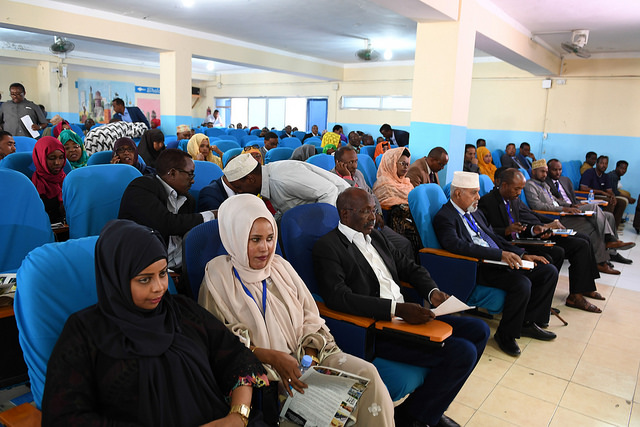Full tray for Lower House as first session fast runs out


The Lower House of Parliament will need to dispense with a number of unfinished business deferred from the ninth parliament before its first session ends in about two months’ time.
From constitutional review process, approval of new PM and cabinet to passing of crucial bills and approval of the 2017 national budget, the Lower House will have to burn the midnight oil to ensure it beats the deadlines, former lawmaker from the 9th parliament Mohamed Amin told Goobjoog News.
Each session of parliament runs for four months and the current house has finished about two months since its term started.
Amin notes the House must first approve the national budget to finance government functions since the last financial period ended December 31, 2016. The government is now running on meagre resources since parliament has not endorsed a new budget,” said Amin.
Critical will also be the debate and approval of the new prime minister. President Mohamed Abdullahi Farmaajo will appoint a new PM but will have to get parliament’s nod before proceeding to form a new government. The PM’s endorsement requires a 50+1 vote by means of show of hands from House of the People. A new cabinet will also have to be approved by the Lower House.
Key bills
The framers of the Provisional Constitution which came into effect in 2012 set ambitious timelines for the establishment of independent commissions ranging from a period of 30 days to 365 days. For example, Article 135 reads the Judicial Service Commission and the Constitutional Court shall be established within 30 and 60 days respectively from the time after the Council of Ministers is formed (2012).
None of the two institutions are in place four years down the line. The Lower House, Mohamed Amin says must pass bills establishing the independent commissions before it goes on recess in less than three months’ time. These commissions include the Judicial Service Commission, The Human Rights Commission, Parliamentary Service Commission, Inter-State Commission, Truth and Reconciliation Commission and the National Security Commission.
The ninth parliament established the Independent Electoral Commission and the Boundaries and Federation Commission.
Anti-terrorism bill
Other crucial bills which parliament must debate and pass before April include one on Water and Natural Resources, National Oil Reserves, Landmines and a bill regarding the regulations of the telecommunications and broadcast industry.
The tenth parliament will also have to debate the Anti-Terrorism bill afresh after amends forwarded by the cabinet were rejected two times by the ninth parliament. “This bill was and remains very contentious. Parliament has not found a better approach to it since some of the provisions in the bill are treated with suspicion by members of parliament,” said Amin.
Parliament will also have to revisit the Citizenship bill which the ninth parliament debated but did not conclude.
Constitutional review process
The ninth parliament deferred a number of articles for review to the tenth parliament which is expected to complete the process ahead of a national referendum.
Notable among them are articles regarding sharing of power, responsibilities and resources between the Federal Government and Federal Member States. Others include the articles dealing with the status of Mogadishu, the type of government; either presidential or parliamentary and clarity on the functions and powers of the Upper House.